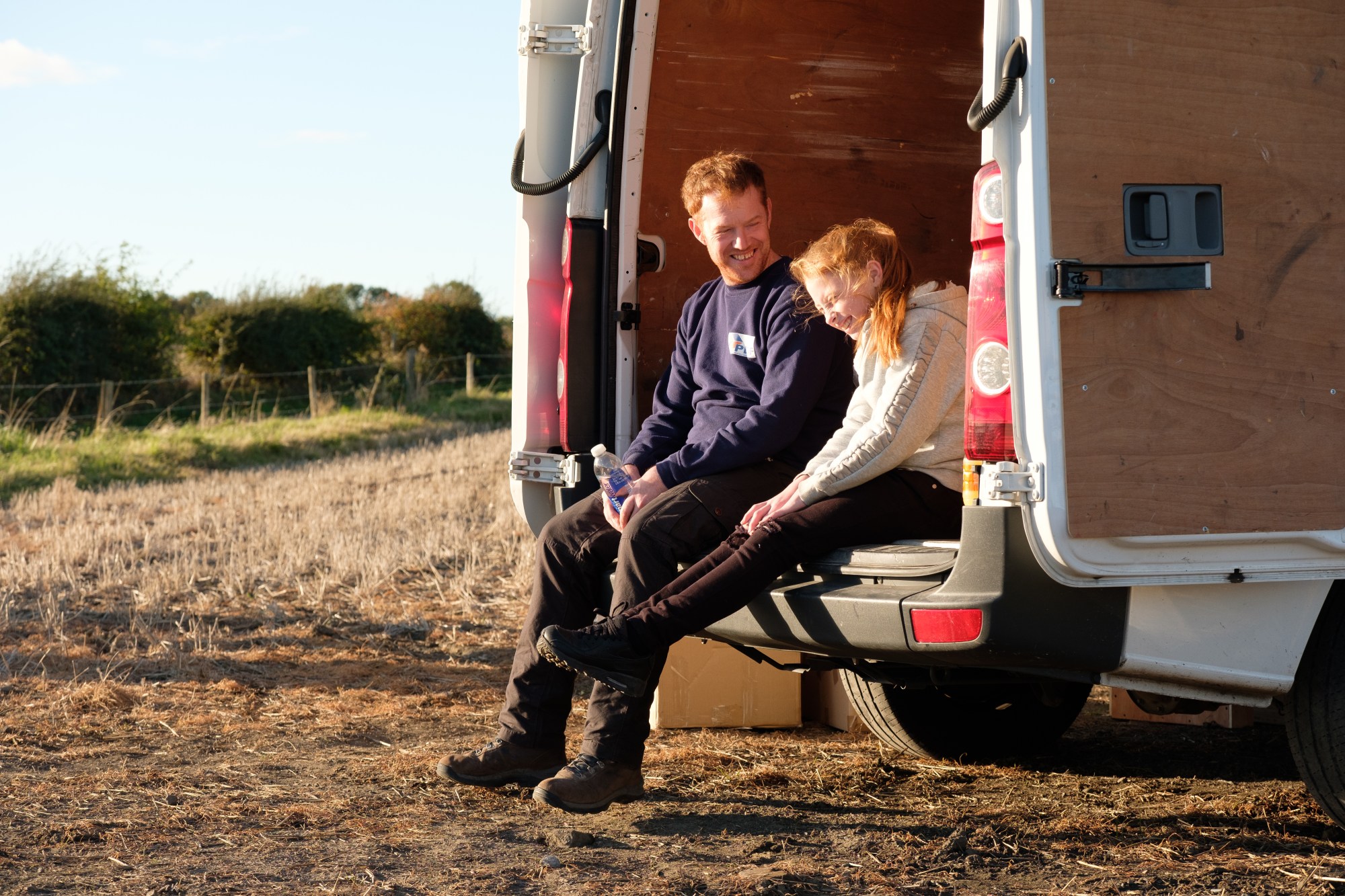
- Festivals
Sorry We Missed You, Ken Loach
Ken Loach is one of the most decorated Cannes directors ever. The British helmer has won two Palmes d’Or (The Wind That Shakes the Barley in 2006 and I, Daniel Blake in 2016) and three Jury Prizes to boot. The title of his latest entry, Sorry We Missed You derives from the notices that are left by delivery persons to customers not home to receive their packages. This being a Loach movie the casual corporate courtesy of that language belies the hardships of one such delivery driver and in a wider sense the human cost hidden behind the efficiency we expect from the modern service economy.
At the beginning of the film Ricky, a formerly employed construction worker is signing the “franchise contract” that will make him a driver for the PDF (“Packages Delivered Fast) delivery company – not an employee mind you, but an independent entrepreneur as the company manager take pains to explain to him, an economic “warrior” and his own boss who will “make himself available” to the parent company on his own terms. We are witnessing the gig economy in action and it’s pretty clear from the first scene that we’re also in for a tour of its pratfalls and indignities. For at least a couple of decades, Loach has been the poet laureate of working-class life and an advocate for workers’ causes. Here he steps into the debate playing out daily in current headlines about companies like Uber and Lyft, food delivery and other app-based services which eschew traditional employer-employee structures and categorize workers as independent contractors. In fact, Ricky learns on his first day (after he has sold his working wife’s car to lease the van necessary to his new job) that his independent contracting comes with strict delivery quotas and time targets. Each missed objective will come out of his pay as well as cost him fines. As an “independent contractor,” he will accrue no pension or benefits. The promise of good pay is dependent on 12 and 14 hour work days and his life soon becomes ruled by the handheld electronic device that dictates his workload and tracks his every location feeding into the company data.
Loach is a master in chronicling the quotidian odyssey of the working poor and this story (set in Newcastle) rings particularly true in this time of underemployment, erosion of workers’ rights and pervasive encroachment of digital automation as new faceless overlord. In a world of growing global inequality Loach trains his lens on the travails of a blue-collar class increasingly losing ground to a prosperity so unequally distributed as to increasingly become a mere mirage for many families. And family is at the heart of this film, even beyond its meditation on late capitalism: it is a deeply affecting portrait of parents and children trying to cope with relentless demands of work that tear at its seams.

